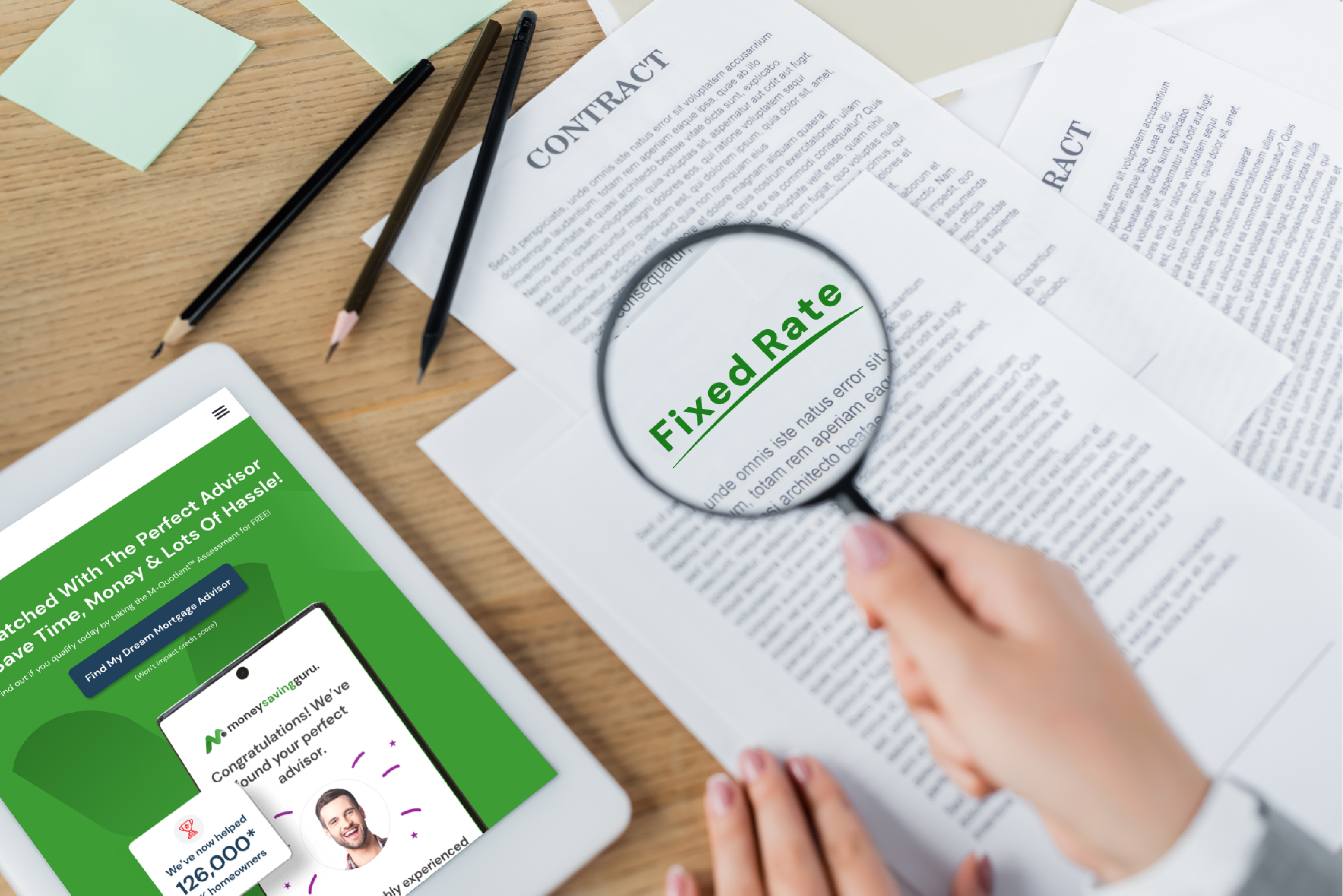What is a Second Charge Mortgage?
A second charge mortgage is essentially an additional loan you take out against your home, besides your main (or first) mortgage.
Imagine it like stacking another loan on top of the one you already have, with your house as the guarantee for both.
Here’s how it works:
- You have your primary mortgage – the first loan on your property.
- Then, you opt for another loan (the second charge) which also uses your house as the security.
The crucial thing to know is that if there’s a problem with repayments, your first mortgage takes priority over the second. Failing to keep up with either can be risky, as you could lose your home.
In essence, a second charge mortgage offers you additional funds, but it’s crucial to remember it’s still a form of debt.
Who Typically Uses Second Charge Mortgages?
Second charge mortgages are suitable in certain scenarios:
- High Early Repayment Charges. If paying off your current mortgage early comes with hefty fees, a second charge mortgage could be a cost-effective alternative.
- Limited Access to Personal Loans. These can be tough to secure, especially if you’re self-employed or have a complex financial situation.
- Changes in Credit Rating or Finances. If your credit score has dropped or your finances have changed since your first mortgage, remortgaging might not offer good rates. A second charge mortgage could be more achievable, albeit with potentially higher interest.
- Consolidating Debts. Useful for combining various debts like credit cards and personal loans into one. However, this does put your home at risk if repayments aren’t met.
Risks and Considerations
It’s important to be aware of the potential downsides:
- Permission from First Mortgage Lender. Often, you’ll need approval from your first mortgage lender before taking a second charge mortgage.
- Higher Interest Rates. Typically, these mortgages come with higher interest rates compared to your primary mortgage.
- Budget Stretching. Managing two mortgage payments can strain your finances.
- Risk of Losing Your Home. The most significant risk is potentially losing your home if you can’t keep up with the payments.
- Implications for Moving. If you decide to move, juggling two mortgages might limit the funds available for a deposit on a new property.
- Long-term Costs. While monthly payments might seem manageable, the total cost over time could be higher.
What Are the Current Second Charge Mortgage Rates in the UK?
When you’re looking into second charge mortgages in the UK, you’ll find the rates are quite varied. They typically range between 6% and 14.2% per annum.
These figures aren’t just random; several key factors come into play in determining these rates.
Firstly, there’s the matter of risk. These mortgages are junior liens, meaning they’re second in line for repayment if things go south. This higher risk naturally impacts the interest rate.
Then we have the broader economy to consider. Changes in the Bank of England’s base rate, for instance, have a direct effect on mortgage rates, reflecting the economic climate’s ups and downs.
Your financial health also gets a close look. Lenders will peek at your credit score, how stable your income is, and your debt-to-income ratio.
Better numbers in these areas can mean more favourable rates for you.
Lastly, how much equity you have in your property plays a role. The more equity, the better the loan-to-value ratio, which can positively influence the interest rate.
In short, when it comes to second charge mortgage rates in the UK, it’s a mix of personal financial factors and the wider economic landscape. It’s about finding the right balance that suits your situation while keeping an eye on the market.
What Determines Your Second Mortgage Rate?
Several things can affect how much you pay. To make sure you’re in a good position for better rates, it’s important to understand what lenders look at.
Here’s a comprehensive rundown of the factors that influence the rates you get:
Credit Score
This is a big one. Your credit score is like your financial report card. A higher score can open the door to lower interest rates because it signals to lenders that you’re a reliable borrower.
Income Stability
Lenders love consistency. If you have a stable income, it reassures them that you’re more likely to make your loan payments on time. This stability can help you secure a more favourable rate.
Debt-to-Income Ratio
This ratio is a big deal. It compares your monthly debt payments to your monthly income.
Let’s break it down with an example.
If your monthly income is £3,000 and your monthly debt payments (including your first mortgage, car loan, and credit card bills) total £1,200, your debt-to-income ratio is 40% (£1,200 ÷ £3,000).
Generally, lenders prefer a ratio under 40%.
A lower ratio shows you’re not over-leveraged, making you a more attractive borrower, which could mean lower rates.
Equity in Your Property
Equity is the portion of your home that you truly ‘own’ — it’s the property’s value minus any mortgage balance.
If you’ve got a good chunk of equity built up, it reduces the lender’s risk.
How does this work?
Let’s say your home is worth £300,000 and you owe £150,000 on your first mortgage. This means you have £150,000 in equity.
The more equity you have, the less risky the loan is for the lender, which can translate into lower rates for you.
The Amount You Want to Borrow
The size of the loan impacts the rate. Smaller loans sometimes have higher rates due to lower profitability for lenders, while very large loans might carry more risk, potentially increasing the rate.
Loan Term
The length of your loan matters too. Shorter loan terms, like 5 years, often have higher monthly payments, but you’ll pay less interest over time.
Longer terms, like 15 or 20 years, spread out the payments, making them lower, but you’ll pay more interest in the long run.
Lenders might offer lower rates for shorter terms because they get their money back faster
The Current Market
Economic factors, including the Bank of England’s base rate, inflation, and the overall lending environment, play a significant role in determining mortgage rates.
Property Type and Location
The type and location of your property can influence rates. Certain types of properties or locations might be considered higher risk, affecting the interest rate.
Your Existing Relationship with the Lender
Sometimes, if you have a strong, positive history with a lender, you might be able to negotiate better terms and rates for your second mortgage.
Regulatory Changes and Policies
Government regulations and lending policies can also impact mortgage rates. Changes in lending laws or economic policies can lead lenders to adjust their rates accordingly.
Each of these factors contributes to the overall calculation of your second mortgage rate. It’s about balancing these elements to find a rate that fits your financial situation.
Understanding these can help you negotiate better terms or improve your eligibility for more favourable rates.
Can You Get an Interest-Only Second Mortgage?
Yes, you can get an interest-only second mortgage. This type of mortgage means you only pay the interest each month.
The actual amount you borrowed stays the same throughout the loan term. Then, at the end of the term, you pay back the full amount you borrowed.
It’s like paying the minimum on your credit card – you handle the interest without reducing the principal.
This option is particularly popular in buy-to-let second charge mortgages. Landlords often prefer interest-only loans as they can reduce the monthly outgoings on a rental property, enhancing cash flow.
The rent collected can cover the interest, with the principal repaid through selling the property or refinancing later.
The big pro of this option is lower monthly payments since you’re not paying off any of the loan itself.
This can be handy if you’re in a tight spot financially or managing rental properties. However, there’s a con too.
At the end of the term, you need to pay back the whole loan in one go. Whether it’s a personal or rental property, this requires planning to ensure you can make the lump sum payment when it’s due.
How to Find the Best Second Mortgage Rates
Finding the best rates for a second mortgage requires a bit of legwork. Here are some tips:
- Shop Around. Don’t just go with the first offer you see. Check out different lenders to see what rates they’re offering. This can include banks, online lenders, and credit unions.
- Compare Offers. Look at the interest rates, but also pay attention to other fees and the terms of the loans. Sometimes a lower rate might come with higher fees.
- Negotiate. You can negotiate on mortgages. If you’ve got a good credit score or a strong relationship with a lender, use that to your advantage.
- Check Your Credit Score. Before you start, know your credit score. A better score can get you a better rate.
- Consider a Broker. A mortgage broker can help you navigate the market and find the best rates. They have experience and knowledge about where to look for good deals.
Remember, the goal is to find a rate that works well with your financial situation. Taking the time to research and compare can save you money in the long run.
The Bottom Line
When you’re looking at second charge mortgage rates, it’s all about understanding what you’ll be paying on top of your existing mortgage. These rates are different from your main mortgage, and they play a big role in how much you’ll end up paying back.
If you need extra funds but don’t fancy changing your current mortgage, a second charge mortgage could be your answer. But remember, your home is the security here, and getting the rates and terms right is crucial.
That’s where a bit of expert advice can make a world of difference.
Talking to a good mortgage broker, someone who knows the ins and outs of second charge mortgages in the UK. They can help you negotiate, gain wider access to more lenders, and eventually find you suitable deals for your situation.
If this sounds like what you need, don’t hesitate to reach out. We can put you in touch with an FCA-qualified broker who specialises in second charge mortgages.






